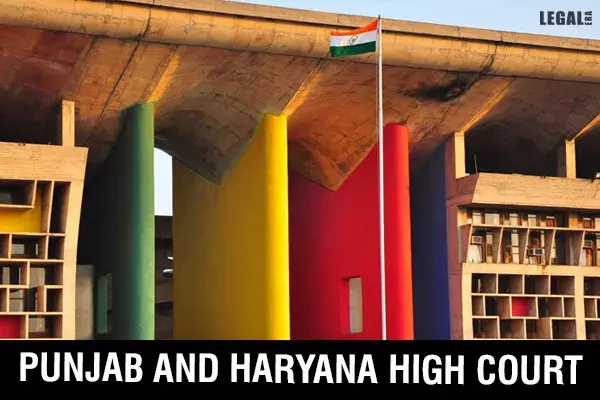Punjab and Haryana High Court: Agency in Charge of Work Execution or Allotment Is Essential Party in Section 11 A&C Act Petition
The Punjab and Haryana High Court deliberated on a Section 11 petition submitted by a construction company involved in;

Punjab and Haryana High Court: Agency in Charge of Work Execution or Allotment Is Essential Party in Section 11 A&C Act Petition
The Punjab and Haryana High Court deliberated on a Section 11 petition submitted by a construction company involved in projects for the Department of Technical Education and Industrial Training. Notably, the department was not a party to the petition. The court concluded that while the work was meant for the Department, it neither issued the allotment nor functioned as the executing agency. Consequently, the petition was granted.
The Punjab State Government and its concerned departments issued an allotment letter dated 24.11.2021 to M/s A.G. Construction Co. ("Petitioner") for the construction of an indoor system hall in Government ITI. Subsequently, the petitioner initiated the construction work. However, a dispute arose between the petitioner and the respondents. The respondents notified the petitioner through a memo dated 15.06.2022 that the administrative approval for the work had been revoked by the Department of Technical Education and Industrial Training.
Even after the cancellation, the petitioner persisted in pursuing payment for the completed work. When the outstanding payment was not received, the petitioner filed a writ petition, which was disposed of through an order dated 27.07.2022. Following this, the respondents acknowledged the pending payment in a speaking order dated 02.09.2022 but failed to release the funds. Having exhausted pre-reference mechanisms, the petitioner activated arbitration clause 25 through a letter dated 13.10.2022. Seeking to refer the dispute to arbitration, the petitioner filed a Section 11 application in the Punjab and Haryana High Court.
The respondents disputed the petition, asserting that the entire amount owed to the petitioner had been disbursed. They relied on Clause 56 of the General Conditions of the Contract to argue that the petitioner is not eligible for compensation upon termination of the contract. Furthermore, the respondents contended that the Department of Technical Education and Industrial Training is a necessary party to the petition.
The High Court determined that the objections raised by the respondents were invalid. The allotment letter was executed between the petitioner and the respondent. Despite the work being intended for the Department of Technical Education and Industrial Training, the department neither issued the allotment nor acted as the executing agency. Consequently, the department was not deemed a necessary party to the petition for the appointment of an arbitrator.
The High Court, while granting the petition, ruled that the assessment of whether the petitioner is entitled to the claimed amount will be left for the arbitrator to decide.
Justice Jaishree Thakur was requested to serve as the sole arbitrator to resolve the dispute between the parties. This appointment was subject to a declaration under Section 12 of the Act regarding her independence and impartiality in adjudicating the dispute.


